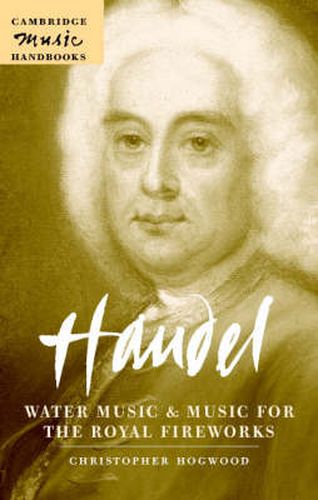Readings Newsletter
Become a Readings Member to make your shopping experience even easier.
Sign in or sign up for free!
You’re not far away from qualifying for FREE standard shipping within Australia
You’ve qualified for FREE standard shipping within Australia
The cart is loading…






This handbook covers Handel’s best known public music, the Water Music, written at the outset of his English career, and the Music for the Royal Fireworks, the last and largest of his orchestral creations. The genesis of these two orchestral suites is examined in its political as well as musical context; practical questions of performance style and interpretation are balanced by an enquiry into Handel’s compositional processes, and the relationship of his other large-scale orchestral compositions, especially the Concerti due cori, to these suites. Original source material is set alongside the most recent theories on Handel’s character and working methods. In particular the problem of ‘borrowings’ is addressed with reference to most recent identifications of Handel’s sources, together with the later presentation of these works in the nineteenth and twentieth centuries, with an account of recordings, editions and a summary of performance questions.
$9.00 standard shipping within Australia
FREE standard shipping within Australia for orders over $100.00
Express & International shipping calculated at checkout
This handbook covers Handel’s best known public music, the Water Music, written at the outset of his English career, and the Music for the Royal Fireworks, the last and largest of his orchestral creations. The genesis of these two orchestral suites is examined in its political as well as musical context; practical questions of performance style and interpretation are balanced by an enquiry into Handel’s compositional processes, and the relationship of his other large-scale orchestral compositions, especially the Concerti due cori, to these suites. Original source material is set alongside the most recent theories on Handel’s character and working methods. In particular the problem of ‘borrowings’ is addressed with reference to most recent identifications of Handel’s sources, together with the later presentation of these works in the nineteenth and twentieth centuries, with an account of recordings, editions and a summary of performance questions.